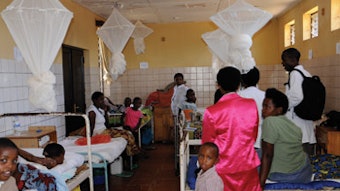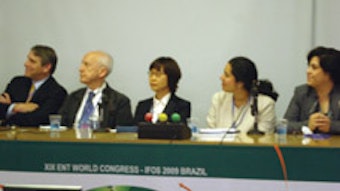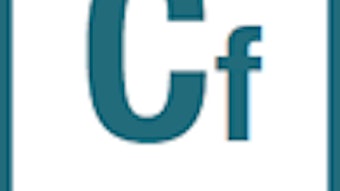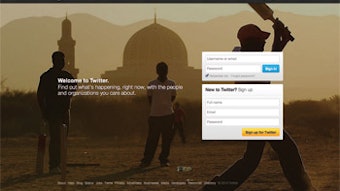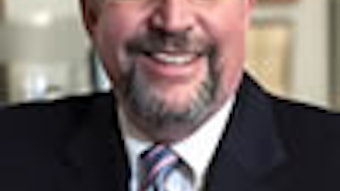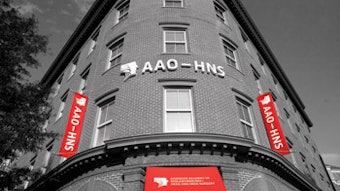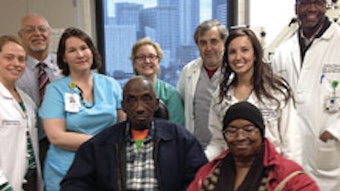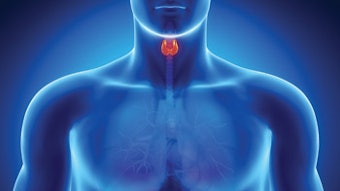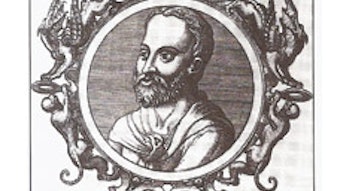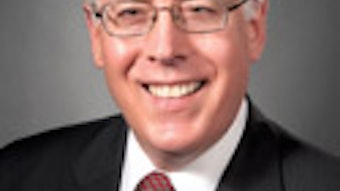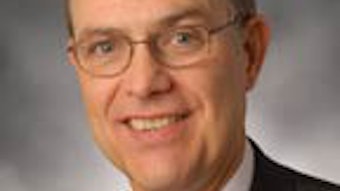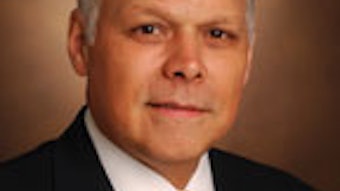Hearing Loss and the World Health Organization—Call for Action
James E. Saunders, MD Coordinator-elect for International Affairs Peter W. Alberti, MD’s article outlines the visionary efforts by a group of men and women who fought to bring hearing loss onto the global health stage in the last 20 years. Recognition that worldwide hearing loss is common and can result in social isolation, language delay, poor educational outcomes, and economic hardship led to the creation of many international organizations to address these issues. Among them are Hearing International, Sound Seekers International, World Wide Hearing, the IFOS “Hearing for All” Campaign, and the Coalition for Global Hearing Health. The recognition gave rise to the World Health Organization (WHO) Office for the Prevention of Deafness and Hearing Impairment. For many years, Andrew W. Smith, MSc, MRCP, who developed many surveys that gave us a more accurate assessment of global hearing loss, staffed this office. In addition, Dr. Smith created training materials for primary care physicians and healthcare workers around the world that have been translated and adapted in multiple languages. After his mandatory retirement from the WHO, Young- Ah Ku, MD, a Korean otolaryngologist, carried on this work. In 2010, after withdrawal of external funding for this WHO office, the post was vacant for two years, despite the rising global estimates of people affected by hearing loss. When the AAO-HNSF and IFOS joined an international consortium to provide temporary support to this key office, the WHO appointed Shelly Khanna Chadha, MD, an Indian otolaryngologist, to direct this program. Dr. Chadha has served admirably in this position, developing an intensive work plan that includes: National hearing health programs in multiple countries; Promoting Primary Ear and Hearing Care (PEHC) around the globe; and Provisions to explore affordable technology to low resources areas. Unfortunately, support for Dr. Chadha’s appointment still relies entirely on external funding and is due to expire December 2013. There is an urgent need to raise awareness within the WHO and its member states about the status of global hearing loss. The WHO General Assembly has not received a hearing loss report since the current WHO Resolution (48.9) was adopted in 1995. Meanwhile, the latest WHO estimates are that 360 million people, five percent of the world population, suffer from disabling hearing loss. Call to Action The WHO Executive Board, composed of Health Ministry representatives from 34 member states, determines the WHO General Assembly agenda. We urge colleagues working in these 34 countries (including the U.S.) to contact their Health Ministry representative to the WHO Executive Board, asking for a new progress report on the status of global hearing loss.For the Executive Board representatives or to learn more, please email James E. Saunders, MD, at James.E.Saunders@Hitchcock.org.
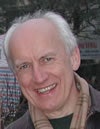 Professor Andrew W. Smith, MSc, MRCP, London School of Hygiene and Tropical Medicine, UK
Professor Andrew W. Smith, MSc, MRCP, London School of Hygiene and Tropical Medicine, UKJames E. Saunders, MD
Coordinator-elect for International Affairs
Peter W. Alberti, MD’s article outlines the visionary efforts by a group of men and women who fought to bring hearing loss onto the global health stage in the last 20 years. Recognition that worldwide hearing loss is common and can result in social isolation, language delay, poor educational outcomes, and economic hardship led to the creation of many international organizations to address these issues. Among them are Hearing International, Sound Seekers International, World Wide Hearing, the IFOS “Hearing for All” Campaign, and the Coalition for Global Hearing Health.
The recognition gave rise to the World Health Organization (WHO) Office for the Prevention of Deafness and Hearing Impairment. For many years, Andrew W. Smith, MSc, MRCP, who developed many surveys that gave us a more accurate assessment of global hearing loss, staffed this office.
In addition, Dr. Smith created training materials for primary care physicians and healthcare workers around the world that have been translated and adapted in multiple languages. After his mandatory retirement from the WHO, Young- Ah Ku, MD, a Korean otolaryngologist, carried on this work.
In 2010, after withdrawal of external funding for this WHO office, the post was vacant for two years, despite the rising global estimates of people affected by hearing loss. When the AAO-HNSF and IFOS joined an international consortium to provide temporary support to this key office, the WHO appointed Shelly Khanna Chadha, MD, an Indian otolaryngologist, to direct this program. Dr. Chadha has served admirably in this position, developing an intensive work plan that includes:
- National hearing health programs in multiple countries;
- Promoting Primary Ear and Hearing Care (PEHC) around the globe; and
- Provisions to explore affordable technology to low resources areas.
Unfortunately, support for Dr. Chadha’s appointment still relies entirely on external funding and is due to expire December 2013. There is an urgent need to raise awareness within the WHO and its member states about the status of global hearing loss. The WHO General Assembly has not received a hearing loss report since the current WHO Resolution (48.9) was adopted in 1995. Meanwhile, the latest WHO estimates are that 360 million people, five percent of the world population, suffer from disabling hearing loss.
The WHO Executive Board, composed of Health Ministry representatives from 34 member states, determines the WHO General Assembly agenda. We urge colleagues working in these 34 countries (including the U.S.) to contact their Health Ministry representative to the WHO Executive Board, asking for a new progress report on the status of global hearing loss.For the Executive Board representatives or to learn more, please email James E. Saunders, MD, at James.E.Saunders@Hitchcock.org.

